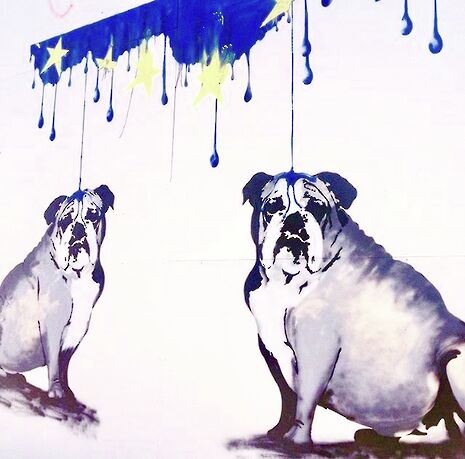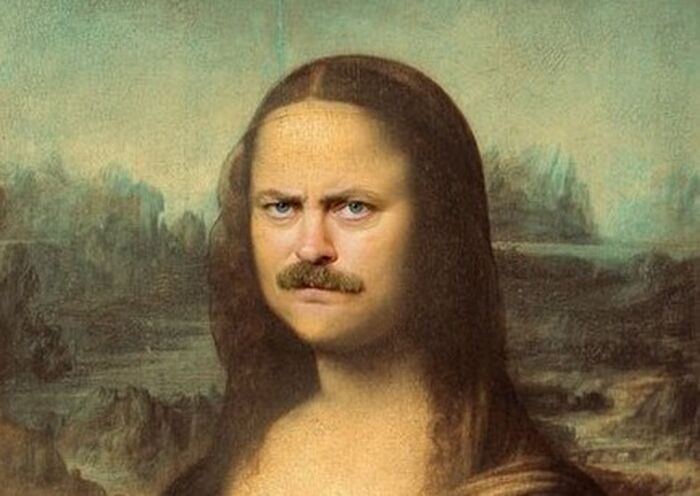The dangers of popular art
Konstantinos Doxiadis offers a contrarian view of the role of appealing to the political in art and culture

It is perhaps an unpopular opinion that most people are bad judges of literary quality, but it need not be. It seems reasonable to say that limited exposure to literature (which is, after all, what most of us have) leads to an inability to distinguish between what is of value and what is not.
Most people don’t spend their days reading, writing, or actively thinking about specific concepts in depth. Instead they work, study, and live their lives spending varying amounts of time and effort on creative pursuits. Art, for most people, is simply a medium for expression, and since our lives are predominantly guided by our social spheres, it makes sense that we enjoy art that exemplifies that. ‘Hot’ political topics such as new feminist developments, or the implications of climate change, feature heavily in our day-to-day lives, and these translate accordingly to the art in which we indulge. We associate the form (art) with its content (idea) and take any slight against a piece close to our hearts as a rejection of the ideals it expresses. After all, one might say, what would art even be if it did not give primacy to ideas? Quality is no longer a topic to be breached when discussing politicised pieces in fear of being branded a bigot or philistine, and attempts to disassociate form from content are frowned upon as incomprehensible dogmatism. The view that ‘art is subjective’ reigns supreme.
The above may be a slight exaggeration on my part. I do not think anybody could seriously defend that the quality of a poem is as clearly defined as the elegance of a mathematical proof, and the caricature I have painted probably exists (ironically) in only the most pretentious of literary circles in London and New York. However, I believe the essence of the problem persists. There is certainly a place for politicised art, from Ogden Nash’s critiques of the American bipartisan system to feminist interpretations of autonomy. But to state this is just platitudinous; there is a place for all art.
The issue we ought to concern ourselves with is delineating what relative value each of these different forms of art must be given in our ever-growing canon. By extrapolating from the appealing intuition that all everyone’s political opinions should be given equal weight in the public sphere, it is easy to conclude that all peoples’ literary opinions should be given equal weight in the literary sphere. But this, I believe, is a non sequitur. The reason we all have the right to equal political representation is because democracy is inherently egalitarian. Attribution of literary value, on the other hand, is not.
It is poems like Eliot’s The Waste Land, that manage to crystallise a social and political age better than any other medium.
In the same way that an experienced psychologist has the ability to pick upon minimal cues and patterns in our behaviour, making astute observations that even our closest friends might not imagine, so too might those with a greater affinity to art recognise a piece’s peculiarities, despite not appreciating the ideals it expresses. Many literary works are scholarly in nature, and others too conceptually complex and dense to readily associate with any relatable issue. These works alienate the non-literary reader, and in a world where publishing has become a cut-throat business, no distributor is going to risk their capital in supporting a doomed venture.
Why publish James Joyce’s Ulysses, or Ezra Pound’s Cantos, when they practically require a year to even read? But it is precisely these works which later become seminal in the field, which push language and thought to its boundaries and inspire generation upon generation of writers to pick up their pens. It is poems like Eliot’s The Waste Land, that manage to crystallise a social and political age better than any other medium. And it is precisely these types of works that are woefully under-represented in the public sphere. They live not through popular appeal, but scramble to survive from funds, grants and endowments, like those provided by The Little Review for Joyce, or The Egoist for Eliot and Pound.
This piece has been far too short, and far too simplified to even breach any meaningful arguments regarding aesthetics. It is merely the condensed expression of personal opinions which have been brewing over the past few months. I hope only to have perhaps weakened some of the intuitive appeal of the claim ‘art is subjective, therefore all art has variable value.’ I believe we can develop a more artistically representative contemporary canon. We can keep our crime thrillers and our Instagram poets, but we should also actively seek to unearth the Joyces and the Pounds, which have been shunned for their aversion to conforming with the whims and headlines of our age.
 News / Caius mourns its tree-mendous loss23 December 2025
News / Caius mourns its tree-mendous loss23 December 2025 News / Clare Hall spent over £500k opposing busway 24 December 2025
News / Clare Hall spent over £500k opposing busway 24 December 2025 Comment / The ‘class’ of Cambridge24 December 2025
Comment / The ‘class’ of Cambridge24 December 2025 Comment / Yes, I’m brown – but I have more important things to say22 December 2025
Comment / Yes, I’m brown – but I have more important things to say22 December 2025 Interviews / Politics, your own way: Tilly Middlehurst on speaking out21 December 2025
Interviews / Politics, your own way: Tilly Middlehurst on speaking out21 December 2025








